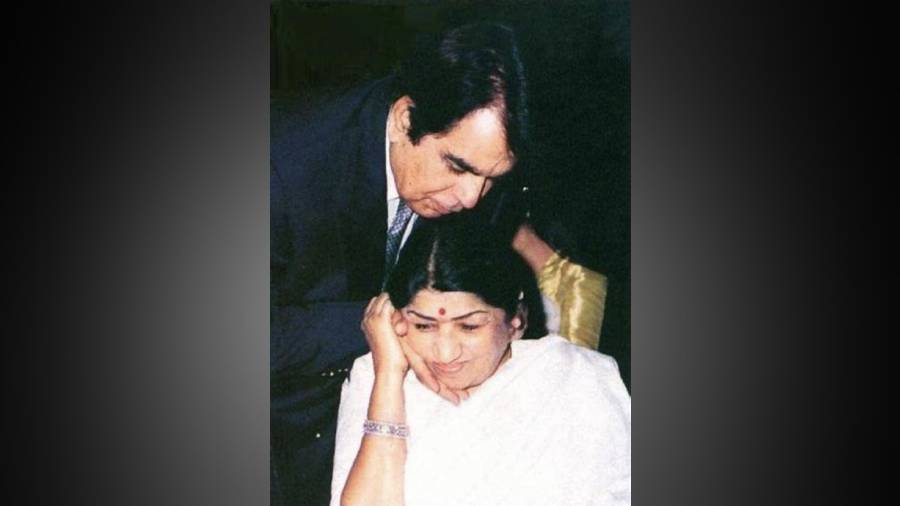How did a Marathi speaking singer not conversant with Urdu perfect her diction in the language? The answer goes back to 1947 when Lata Mangeshkar met Dilip Kumar for the first time and he expressed doubts over her pronunciation, prompting her to get lessons from a maulana.
Mangeshkar, who died on Sunday in a Mumbai hospital, recalls her experiments with Urdu in Kumar's autobiography The Substance and the Shadow and said Kumar gave her a gift unknowingly and unhesitatingly" in their first meeting itself.
She was introduced to the legendary actor by noted composer Anil Biswas on a local train. Recounting the meeting sometime in 1947, Mangeshkar wrote that Biswas introduced her to Kumar saying, "Lata hai, bahut achcha gaati hai. (This is Lata, she sings very well.)"
To which Kumar replied, "Achcha, kahan ki hai?' (OK. Where is she from?)" and Biswas gave her full name, Lata Mangeshkar.
"The remark that Yousuf Bhai made when he found out that I am a Maharashtrian is something that I cherish because it made me seek the perfection I then lacked in my Hindi and Urdu diction. He said very truthfully that singers who were not conversant with the Urdu language invariably tripped in the pronunciation of words derived from the language and that jarred and spoiled the listening pleasure for those who enjoyed the lyric as much as the melody," Mangeshkar said in the book.
At first, she said, it saddened her that he thought she had a flaw in her rendering.
"Then, I thought over the remark and I realized he was right and he had said it with the intention of improving my diction if it needed the improvement."
Mangeshkar said she went home and sent for a family friend who was an Urdu expert to come over urgently as she wished to take lessons in Urdu immediately.
"A learned maulana was arranged by Shafi Imam, our family friend who was like an elder brother to me. As I continued my Urdu lessons, I found myself being appreciated and admired more and more," the legendary singer said.
The result of that first meeting and the lessons that followed were priceless pieces of musical legacy in Urdu, including Pyaar kiya toh darna kya and Bekas pe karam ( Mughal-e-Azam ) and Mausam hai aashiqana ( Pakeezah ).
Mangeshkar went on sing thousands of songs in as many as 36 Indian languages in her almost eight-decade career.
In the book, Mangeshkar also recounted how she never missed an opportunity to call on Kumar who she said was like an elder brother.
"We did not meet too often those days. However, whenever there was a recording of a song at Mehboob Studios and Yousuf Bhai was shooting there, I never missed the opportunity to call on him. He was a superstar and I was rising on the horizon as a playback singer, but, when we met, he held me close to his heart like an elder brother and gave me the love and respect that only someone as pure as he could," she said.
Recounting another incident highlighting their affection, Mangeshkar wrote that during an evening at composer Kalyanji's home a plate of paan (betel leaves) arrived after snacks.
"When I took the liberty of telling Yousuf Bhai to have a paan, his expression changed to a frown. He said: 'It is not proper for you to do this. Never do it in future'. I was taken aback because, at that time, I had no idea that it was not appropriate for a decent lady to offer a paan to a man," she said.
Mangeshkar, the voice of generations of Indians and one of the biggest music icons of the country, died Sunday due to multiple organ failure, her sister Usha Mangeshkar and doctors treating her said. She was 92.
Considered one of the greatest playback singers in Indian cinema, she was awarded the Bharat Ratna, India's highest civilian honur, as well as the Padma Vibhushan, Padma Bhushan, Dada Saheb Phalke Award, and multiple National Film Awards.










